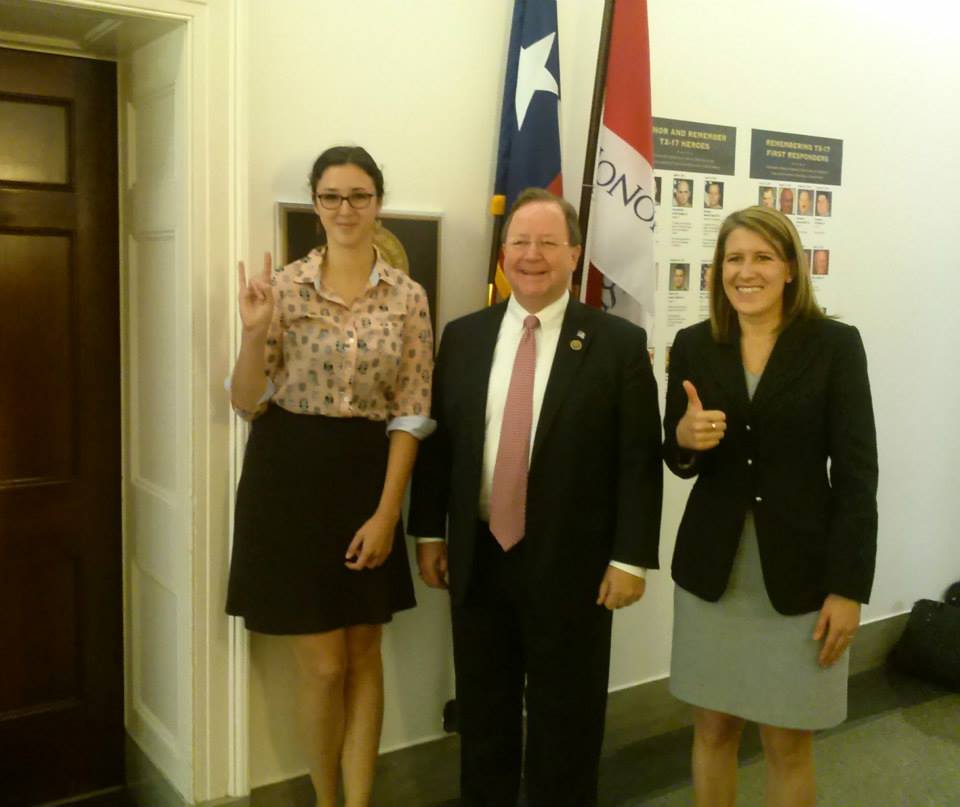GSPA recipients bridge the gap between science and policy

2015 Graduate Student Policy Award winner Emlyn Resetarits (University of Texas-Austin) and fellow graduate student Margot Wood (Texas A&M University) pose with Representative Bill Flores (R-TX) (Center) on Capitol Hill. Each student shows the competitive spirit of their university by giving the “Hook ‘Em Horns” and “Gig ‘Em Aggies” hand signs.
In some respects, this year has been a politically tumultuous one for scientists working in federal policy. The US House Science, Space and Technology Committee has pushed legislation that would radically alter how the National Science Foundation prioritizes its budget and made repeated requests for information related to how certain federal agencies utilize science in their decision-making processes.
While it is true that for some policymakers, their critique of scientific findings or priorities are based in fundamental differences of ideology, there are many others who are simply unaware of the degree of rigor involved in the scientific peer review process for science publications or the high level of transparency and competitiveness that constitutes the National Science Foundation’s merit review process for grant proposals. Consequently, it is critically important to maintain an open dialogue of communication between those who make science policy and those who practice the science. This is necessary to advance understanding of basic scientific research and seek consensus on how this research can be used to improve and improve our way of life.
The Graduate Student Policy Award (GSPA) is one such tool the Ecological Society of America (ESA) uses to engage scientists in policy and help lawmakers understand the ecological research being conducted in their congressional districts and how it helps the communities they represent.
During the most recent edition of the Ecologist Goes to Washington podcast, 2015 GSPA recipient Emlyn Resetarits (University of Texas-Austin) reflects on her experience.
For Resetarits, meeting with congressional offices highlighted the “isolated scientific community” she operates in, given that certain ecological terms and species she referred weren’t immediately familiar to some of the legislative staff during their discussion. She hopes that more Members of Congress will hire scientists as policy aides, but noted it’s beneficial to continue a dialogue with not just offices that are less familiar with science, but also those that may be critical of certain scientific findings or processes.
“I think we’re strengthened when we really are able to talk to people who disagree with us, take their doubts and incorporate it into our research or how we explain ourselves,” said Resetarits. “I think it strengthens how we do science when we talk to people who maybe disagree with us.”
Resetarits encourages scientists looking to get involved with policy to volunteer with a local agency whose work they found valuable— noting that public speaking skill is vital for communicating scientific research to wide audiences.
“Just being able to public[ly] speak to a general audience about what you do is really important and if you can do that, that will really give you a leg up on trying to bridge science and policy,” she said.
ESA is currently excepting applications for its 2016 Graduate Student Policy Award. Click here for additional information on how to apply.